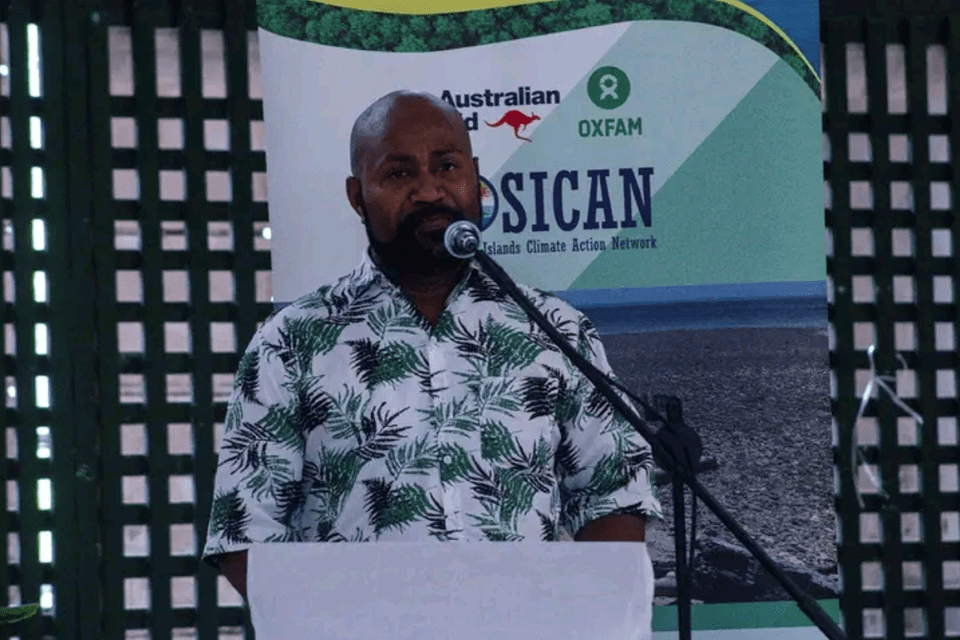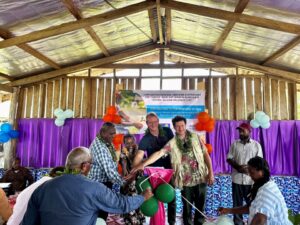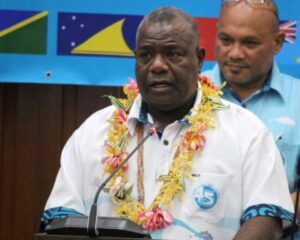BY JOHN HOUANIHAU
CLIMATE finance is an important topic in the overall climate change space, according to the National Program Coordinator and Head of the Project Coordination Management Unit of the Ministry of Environment Climate Change & Disaster Management, Barnabas Bago.
Climate finance refers to local, national, or transnational financing—drawn from public, private and alternative sources of financing—that seeks to support mitigation and adaptation actions that will address climate change.
He said climate financing is distinguished from development financing and to access the finance depends on the Solomon Islands’ readiness and the rationalization of the issue.
“It is important to know the different stakeholders involved at the national, regional, and international levels.
“To access the finance depends on the rationalization of issue. Is it a climate change problem or is it a development problem and readiness of any country,’’ Barnabas Bago reminded the participants of this year’s 2022 Annual Climate Justice Dialogue and Symposium.
Speaking on the topic of unlocking climate financing, accessibility impact programming, accountability, and the challenges, Bako said the biggest climate finances come from multilateral sources while others are from bilateral partners.
“Multilateral sources include Green Climate Fund (GCF), Global Environment Facility (GEF), Least Developed Countries Adaptation Funds (LDCAF), and Special Climate Fund (SCF),’’ Bago said.
He said the trend of climate financing, according to the 2017 climate assessment report shows an increasing trend over the last 7 to 20 years.
“To access the finance, Solomon Islands needs national institutional capacities and arrangement.
“Normally funds come through accredited entities and don’t come through the government,” Bago pointed out.
He said accredited entities are the United Nation Development Program (UNDP), World Bank (WB), the Secretariat of the Pacific Regional Environment Programme (SPREP), and the Pacific Community (SPC), which is at the regional level that accesses the funds on our behalf.
“Currently, we do not have a national entity. So we are working with different stakeholders to see how we can organize which is the first level and the next level is how we access the funding,’’ explained Bago.
“As I have said Institutional arrangement is important so since 2017 we establish a Climate finance Unit within the Ministry of Finance.
“The unit was established and the officers working there are project base.
“The Solomon Islands have the opportunity to get national accredited entities to access this funding.
“Hence, we are working with the Ministry of Finance, National transport funds, and the Development Bank of Solomon Islands on accessing these funding.
He said these are the things funders look at and if we can have a grip of the three main questions then definitely we will unlock our accessibility to climate financing.
“I would recommend that the government work closely with businesses and private sector organizations collaboratively so that we can find a solution that goes in line with the national objectives related to climate change,’’ he said.
On a similar note, Solomon Power Planning Engineer, Palmer Anisi revealed that according to Solomon Power’s point of view, accessing climate change finance is very difficult due to a lack of expertise and information or resources.
“To unlock access to climate financing, we must meet the climate financial institution requirements.
“For example, what is our contribution for the transition from fossil fuel to clean energy transition, or what are the technical features of the project in terms of readiness, what resources we have, or technical people and the project commercial process features like capital structure and revenue modeling and project procurement policy,’’ Anisi explained.




